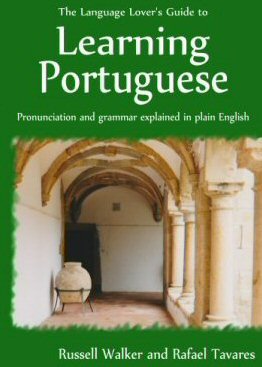Verbs are often described as ‘doing words’, in that they signify some form of action. Although this is true, there are some verbs that do not relate to obvious actions – in particular, auxiliary verbs such as ‘would’ and ‘can’ which are explained in a little more detail later. A good starting point though is to ask yourself which word denotes an action or process being carried out.
One way to identify a word as a verb, is to ask yourself whether you can precede it with ‘I’, ‘we’, ‘you’, ‘he’, ‘she’, ‘it’, and ‘they’ to denote somebody performing the action. For example, with the word ‘went’, try saying: ‘I went, we went, you went, he went, she went, it went, they went’ – it all sounds OK, so ‘went’ is a verb. However, if you try to do the same thing with a word like ‘concept’, you end up with nonsense: ‘I concept, we concept, you concept, he concepts, she concepts, it concepts, they concept’ – it just doesn’t work. Concept therefore is not a verb. By the way, this prefixing with ‘I’, ‘we’, ‘you’ etc. is called ‘conjugating’ the verb.
Depending on the ‘tense’ of the verb (explained later), you might find that you have to modify the word slightly before you can conjugate it. If you come across a word that you think is a verb, but you can’t conjugate it, try to modify it in such a way as to denote that you were in the habit of performing the action yourself. For example, take the word ‘doing’. ‘I doing, we doing, you doing, they doing’ does not make sense. However, to denote that I am accustomed to ‘doing’ something, I would say ‘I do’.
We can see then, that all we have to do in this example, is modify the word slightly by dropping the ‘ing’, which gives us ‘I do, we do, you do, they do.’ Basically, we are checking whether the word belongs to a ‘family’ of words that can be conjugated – if so, it is probably a verb. As you become more familiar with different verb forms, you will find that you recognise the different words that belong to a particular verb's ‘family’.
Very occasionally, you might find that a verb cannot be fully conjugated – for example: ‘rain’. It does not really make sense to say ‘I rain, you rain, we rain’ etc, but ‘rain’ is still a verb, and it can be conjugated as ‘it rains’. The reason the full conjugation does not make sense is that the verb has a very specific application, ie. to the weather (so ‘it [the weather] rains’ is the only conjugation that fits). Full conjugation of a word like this could be used as a literary mechanism, but it is not used in every day speech.
Sometimes, the same word can be classified as a noun or a verb, depending on the context. For example, in the sentence ‘he wanted to photograph me’, the word ‘photograph’ is acting as a verb. However, saying ‘he wanted to take my photograph’, changes the word ‘photograph’ into a noun. For this reason, be careful when identifying verbs that the meaning of the word when conjugated is consistent with the meaning of the word in the sentence in which you find it. It might be best to first try to identify whether the word is a noun, and only if it isn't, try conjugation to see if it is a verb.
Here are some more examples of words that can be nouns or verbs depending on the context: paint; love; telephone; record (note the shift in stress when pronouncing the noun form and the verb form of ‘record’); book; being; filling; helping; and lots of other words that end with ‘ing’.
There is a lot more to be said about verbs and we will delve deeply into them a little later.
|
Examples of Portuguese verbs |
|
|
Portuguese |
English |
|
amar |
to love |
|
caminhar |
to walk |
|
garantir |
to guarantee |
|
ir |
to go |
|
nevar |
to snow |
|
perder |
to lose |
|
saber |
to know |
|
ter |
to have |

